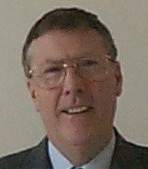 Over on the DCM at Oxford blog there is an excellent article entitled ‘On Being a Christian Academic‘, written by Donald Hay, retired professor of Economics and fellow of Jesus College, Oxford, former acting Pro Vice Chancellor for Planning and Resources for the university, and founder of the Developing a Christian Mind programme at Oxford.
Over on the DCM at Oxford blog there is an excellent article entitled ‘On Being a Christian Academic‘, written by Donald Hay, retired professor of Economics and fellow of Jesus College, Oxford, former acting Pro Vice Chancellor for Planning and Resources for the university, and founder of the Developing a Christian Mind programme at Oxford.
Hay says that three passages in particular shaped his view of what it means to be a Christian academic. The first is Mark 12:28-30 in which Jesus, asked what is the greatest commandment, responds: ‘The most important one is this ‘Hear O Israel, the Lord our God, the Lord is one. Love the Lord your God with all your heart and with all your soul and with all your mind and with all your strength’. Hay comments:
The interesting addition is the word ‘mind’. The Greek word describes the thinking or cognitive aspect of what it is to be a human being: our capacity to think rationally about things. This suggests that the life of the mind should also be exercised as part of our commitment to serve Christ. This is of course for every Christian, but it has a particular significance for academics whose particular calling is to the life of the mind.
The second of Hay’s passages focuses on just one word: the ‘therefore’ in Romans 12:1-2:
Therefore, I urge you brothers, in view of God’s mercy, to offer your bodies as living sacrifices, holy and pleasing to God – this is your spiritual act of worship. Do not be conformed any longer to the pattern of this world, but be transformed by the renewing of your mind.
Hay glosses the passage in this way:
Once again the emphasis is on our capacity for rational thought, but the context in the letter suggests that it is moral or ethical evaluation that the apostle has in mind here. The life of the mind is to affect very practically the way in which we live our lives, including in verse 3 an injunction to humility and soberness in our self-evaluation, and an exhortation to give ourselves in service to others (verses 6-8).
The final passage that marked Hay’s attitude to his work as a Christian is the letter to the exiles in Jeremiah 29:4-7:
“Thus says the LORD of hosts, the God of Israel, to all the exiles whom I have sent into exile from Jerusalem to Babylon: Build houses and live in them; plant gardens and eat their produce. Take wives and have sons and daughters; take wives for your sons, and give your daughters in marriage, that they may bear sons and daughters; multiply there, and do not decrease. But seek the welfare of the city where I have sent you into exile, and pray to the LORD on its behalf, for in its welfare you will find your welfare.
Here, Hay picks up on the word ‘welfare’ (shalom):
The challenge for the Christian academic is how to seek ‘the welfare of the city’, both in its manifestation in the university and research institutes, but also the wider culture in which those academic institutions are located both geographically and intellectually.
He summarizes these verses by saying that we should pursue a Christian mind and a Christian worldview in the service of the city in which we find ourselves. We could also sum up the three verses in terms of four verbs:
- LOVE (God with all your mind)
- OFFER (your bodies as living sacrifices)
- be TRANSFORMED (by the renewing of your mind)
- SEEK (the welfare of the city where I have sent you)
Sneaking in the extra verb “be transformed” reminds us that the task of being a Christian academic is not one more item on our to-do list, one extra job we are in control of and can dispatch in a whirl of high octane academic super-efficiency. This might go against our omni-competent, can-do mentality, but it is in truth our only hope, because we know from Romans that, in academic life as everywhere else, ‘ Those who are in the flesh cannot please God’ (Romans 8:8). So becoming a god-glorifying Christian academic is God’s work in us and through us, as we struggle in his power. It is not something we can make happen by ourselves.
If you’re like me and enjoy the way that mnemonics allow you to bring information quickly to mind in the midst of battle, then just think that in the light of these four verbs, there is certainly L-O-T-S for the Christian academic to be doing!
You could start by reading the rest of Donald Hay’s excellent article…
